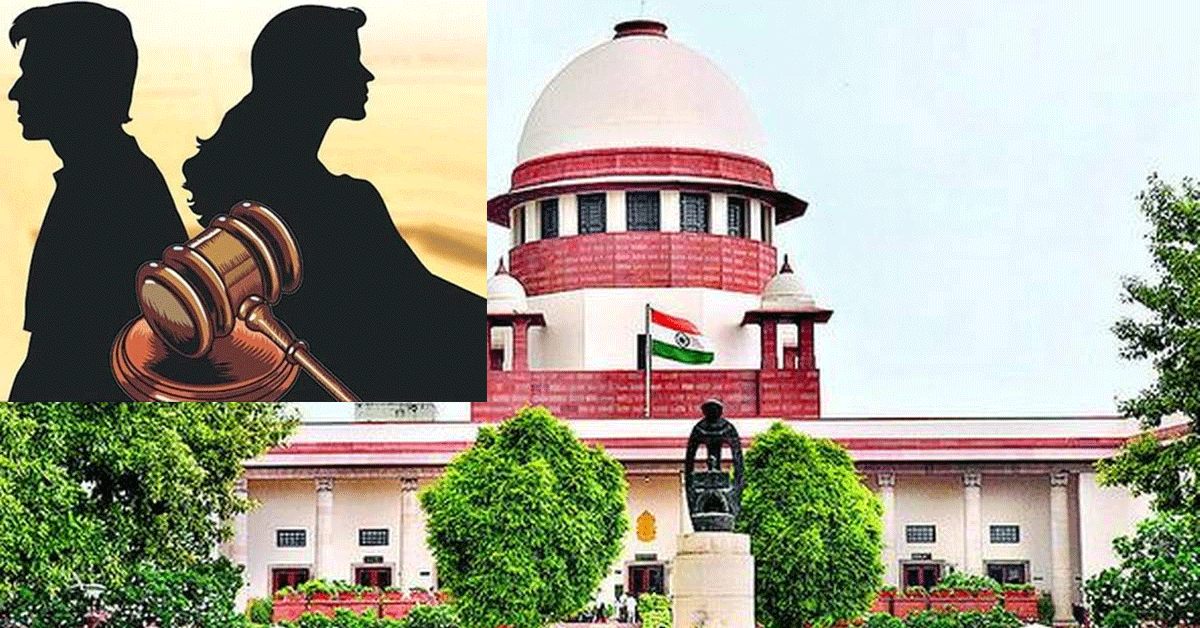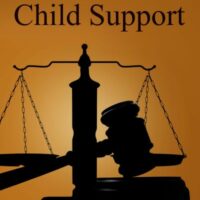Wife can claim return of ornaments from husband after divorce only if she can prove husband was entrusted with it: Kerala High Court
The Court has reiterated the position in the case of Binod v. Sophy that the wife while making a claim for gold ornaments will have to prove the entrustment of gold ornaments. The Kerala High Court recently reiterated that a wife can seek the return of gold ornaments worn during the wedding from her husband after divorce only if it is proved that he had been entrusted with them [Binitha v Hareendran].
Debriefed: What is irretrievable breakdown of marriage? Can couples move Supreme Court for divorce?
We explain the Constitution Bench verdict on the Supreme Court’s powers to grant divorce on the ground of irretrievable breakdown of marriage. In a significant ruling, the Supreme Court on Monday held that it can dissolve marriages of consenting couples on the ground of irretrievable breakdown of marriage and waive the six-month period they have to wait for under law before getting a divorce. Although the Constitution Bench laid down factors to consider while determining irretrievable breakdown of a marriage, it clarified that parties cannot directly move the apex court seeking dissolution of marriage. In this article, we “break down” the five-judge Bench verdict on the Supreme Court’s powers to grant divorce on the ground of irretrievable breakdown of marriage. What did the Court rule on its power to grant divorce? The Court held that it can use its discretionary powers under Article 142(1) of the Constitution to grant divorce to an estranged…
Irretrievable Breakdown of Marriage
Supreme Court can grant divorce using Article 142 powers on irretrievable breakdown of marriage: Constitution Bench The issues involved were whether the Supreme Court could exercise its powers under Article 142 of the Constitution to dissolve a marriage and the broad parameters of such powers. The Supreme Court on Monday held that it can exercise its plenary powers under Article 142 of the Constitution to grant a decree of divorce to consenting parties, in cases of irretrievable breakdown of marriage [Shilpa Sailesh v. Varun Sreenivasan]. A Constitution Bench of Justices Sanjay Kishan Kaul, Sanjiv Khanna, Abhay S Oka, Vikram Nath and JK Maheshwari held that the six month period prescribed under the Hindu Marriage Act can be dispensed with. “Article 142 must be considered in light of the fundamental rights. It should contravene a non-derogable function of the Constitution. Court under the power is empowered to complete justice,” the Bench said. The verdict came in a batch of petitions…
Irretrievably broken down marriage can be dissolved on ground of cruelty: Supreme Court
To keep the façade of a broken marriage alive would amount to doing injustice to both the parties, the Court said. In a significant verdict, the Supreme Court on Wednesday held that an irretrievably broken down marriage spells cruelty in itself, and can be a ground for dissolution of marriage under Section 13(1)(ia) of the Hindu Marriage Act, 1955 [Shri Rakesh Raman v. Smt Kavita]. A Division Bench of Justices Sudhanshu Dhulia and JB Pardiwala was of the view that even though irretrievable breakdown of marriage may not be a ground for dissolution of marriage under the Act, the same can be read as a ground of ‘cruelty’. “A marriage which has broken down irretrievably, in our opinion spells cruelty to both the parties, as in such a relationship each party is treating the other with cruelty. It is therefore a ground for dissolution of marriage under Section 13 (1) (ia) of the Act,” the judgment stated. The Court was hearing an appeal against a…
THE EMERGING TREND OF LIVE-IN RELATIONSHIPS AND THE APPLICABLE LAWS
one are the days when live-in relationships were tabooed and considered to be a stigma. The changing patterns of family structure indicates an acceptance towards the concept of live-in relationships. Two consulting adults can stay together under a roof and are not barred by law to do the same. A live-in relationship can be defined as a relationship wherein a couple resides together in a house for a long duration without marriage. There is no single law which is applicable on live- in relationships in India. Live in relationships are not even defined as per the law. No particular legislation decides the issues emerging out of such relationships such as the rights of the couples in the relationship, right of alimony, domestic violence or the legitimacy of the children born out of such relationships. However, the court has decided these issues through various judgments on a case-to-case basis. INDEX Judicial…
WOMAN’S RIGHTS AFTER A DIVORCE
Oppression and suppression of women are still a reality in marriages. Even though India is paving its way towards being a gender-neutral country but some ounces of patriarchy still exist. This can be substantiated from the fact stated in the National Family Health Survey-5 which is that Spousal Violence has seen an increasing trend in five states, namely Sikkim, Maharashtra, Himachal Pradesh, Assam, and Karnataka where Karnataka is a state that has shown the largest increase in cases of spousal violence, from 20.6% in NFHS-4 to 44.4% in NFHS-5. It is advisable to break free from the clutches of a bad marriage rather than suffering each day. Divorce can be quite taxing for both the spouses not only emotionally but also economically. Divorce can happen because of any reason be it compatibility issues or cruelty or violence in the marriage. Women may face many difficulties and challenges while making their way…
Introduction to the Prevention of Sexual Harassment of Women (at Workplace) Act, 2013.
Introduction. The world has gone through drastic changes in the past one century, long gone are the days when men used to be the sole bread winner of a family. There has been a large influx of women in the professional sphere of life; however, this large influx of women into the mainstream workforce has also put them at greater risk of sexual harassment at their workplace. Sexual harassment at workplace is a form of gender discrimination which violates a woman’s fundamental rights to equality and right to life & personal liberty as guaranteed under Articles 14, 15 and 21 of the Constitution of India. At the same time, every form of sexual harassment is a detriment to the dignity of a woman. The very first legislation which has been enacted by the Ministry of Women and Child Development in India to tackle the issue of sexual harassment of women…
A WOMAN’S LIABILITY FOR THE OFFENCE OF RAPE
INTRODUCTION Recently, the Hon’ble Allahabad High Court passed a controversial verdict on an issue related to the offence of rape. In an application preferred under Section 482 of Code of Criminal Procedure, 1973 (‘CrPC’) against the order dated 03-12-2018, whereby the applicant had been summoned to face trial for offences under Section 376-D, 212 of the Indian Penal Code, 1860 (‘IPC’), The Hon’ble High Court observed that a woman cannot commit the offence of rape under Indian law, but if she facilitates the act of rape with a group of people, then she can be prosecuted for gang rape under the penal code in accordance with the amended provisions. This verdict has sparked a lot of debate and discussion among legal experts, activists, and the general public. While some have welcomed the decision, others have criticized it as being regressive and patriarchal in nature. In this blog post, we will explore…
WHAT IF I CANNOT AFFORD TO PAY MY CHILD SUPPORT OR ALIMONY?
If you find yourself in the position that you cannot pay your child support or alimony obligation due to circumstances beyond your control, such as the loss of a job or extended illness or medical care due to a serious injury or accident, there are legal remedies available. First, it is important to understand that you need to seek legal relief at the commencement of the circumstances which are interfering with your ability to pay your financial obligation. You cannot wait until you are behind and have substantial arrears before you file a court action. Also, it is important to realize if you file timely, then you protect certain assets you might have as every person who is obligated to pay any type of support has some protection against liquidating all assets to pay support obligations. If this were not the case, the paying person would eventually run out of…
ADULT DEPENDENT CHILDREN AND CHILD SUPPORT
In India, parties who have children and divorce have to consider child support. Child support is generally ordered through a child’s majority (age 18); however, if the child is still attending high school with a reasonable expectation of graduation on or before the child’s nineteenth birthday, then child support is extended to high school graduation. In no event can child support go beyond the age of nineteen unless certain special circumstances exist. One of those special circumstances is child support for children who have special medical, educational, or mental health needs. In India, there are statutory protections in place to protect and assist these special needs children, who we refer to as “adult dependent children.” Specifically, India , Section 12926 provides that a Court of competent jurisdiction may order child support for a dependent child “beyond the age of 18 years when such dependency is because of mental or physical…










